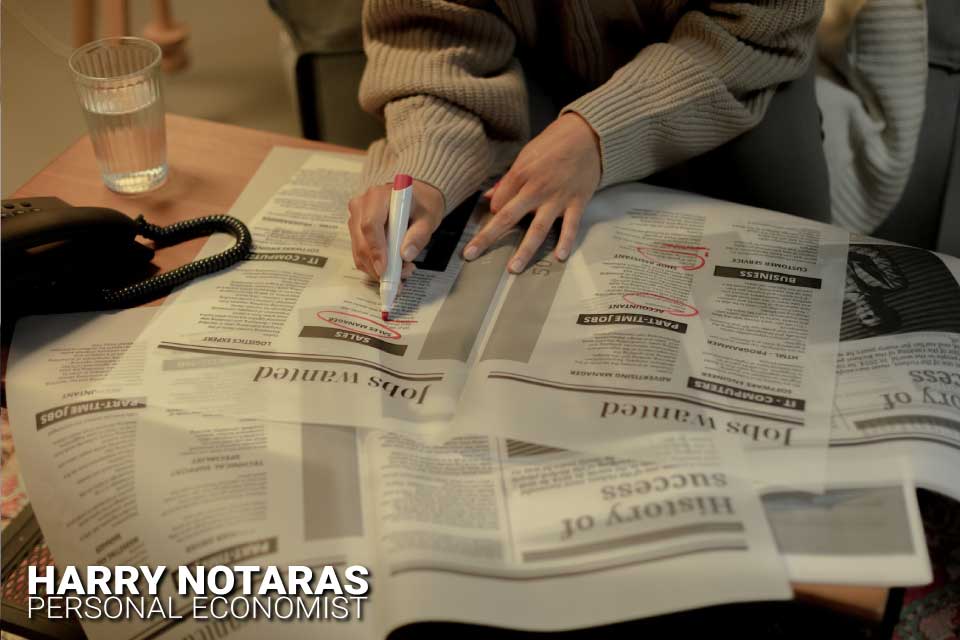Deflation or Stagflation
If I had to choose between these two evils, it would probably be stagflation, but it would be a close-run thing.
It looks like the reserve bank may eventually be in the invidious position of one day having to deal with stagflation. Stagflation is roughly defined as the condition in which there is slow economic growth (stagnation) and therefore rising unemployment and rising prices at the same time.
If we needed reminding of what the standard cure for inflation is, we are being given a lesson in that right now. Reduction in consumption and investment demand by using high-interest rates to deplete households and businesses of money. At least, from a monetary policy perspective.
The monetary policy cure for unemployment is the opposite. Lowering interest rates leaves more money in the hands of households and businesses so they can consume and invest more and increase economic growth and employment.
Stagflation
In the case of Stagflation, where unemployment is increasing along with prices, monetary policy working in isolation is placed in a conundrum. The policy is torn between higher interest rates to curtail inflation and lower interest rates to encourage economic growth.
This is where fiscal policy is required to play a role. Monetary policy could be used to deal with inflation while fiscal policy could be used to deal with the unemployment problem.
It would require the authorities to be able to chew gum while walking at the same time but in a functioning economy where the institutions have clear roles this could work.
The problem now is that the Reserve Bank, which runs monetary policy, has had the maintenance of full employment added to its traditional role of price stability.
If there is such a thing as anti-reform. We are witnessing it now with this imposition upon the Reserve Bank and the backhanded abrogation of the responsibility of full employment by the federal government which oversees fiscal policy. My earlier article called “The Reserve Bank of Australia set up to fail” talks about this.
Notwithstanding, this anomaly, in theory, we have the tools to deal with stagflation.
Deflation
Deflation is another beast altogether.
What is happening in China right now will be sending chills up the spines of more thoughtful economists.
When China decided to withdraw from its policy of zero Covid, it hoped that the opening of industry would provide a springboard for its economy to leap into a strong growth cycle.
The leap has become a flop.
Because of a severe reduction in domestic confidence in the Chinese economy, the surge in activity failed to materialise.
Not only that but deflation has set in as price rises have become negative. Prices of goods and services in China are falling.
This is different to disinflation which is happening in Australia whereby the inflation rate is falling.
Prices are going backwards.
This is dangerous for China and therefore potentially all of us because of the role China plays in the global economy.
This is because when it comes to managing the economy and the role that interest rates play. The discussion misses a small but crucial point about the role interest rates play in managing the economy.
Real Interest Rates
It is ‘real’ interest rates that are important rather than ‘nominal’ interest rates.
Nominal interest rates are the ones we see discussed and published on a regular basis.
Real interest rates are nominal rates less the rate of inflation. That is the rate that has a real critical influence for the purpose of managing the economy.
When the inflation rate falls, real interest rates rise. Its mathematics.
The dilemma occurs when nominal interest rates are zero or close to zero and deflation is present and accelerating.
It has the potential to start a spiral whereby rising real interest rates slows activity which further lowers prices and further increases real interest rates.
We dodged a bullet prior to covid when the Reserve Bank lowered the cash rate to .1% and the inflation rate was uncomfortably low. In 2018 the rate was below the targeted band the Reserve Bank aimed for which was 2 to 3 percent. It came in at 1.6 percent.
If we weren’t saved by the massive fiscal stimulus bought on by the Coronavirus, we may be in an economic death spiral by now.
We are headed back in that direction now. The very strong fiscal stimulus is behind us. Disinflation is starting although we have not reached deflation yet. And our biggest trading partner has caught a bout of deflation with consumer prices dropping about .3% in the most recent quarter.
Even scarier, producer prices in China have dropped by about 4%.
Producer prices can be a leading indicator of consumer prices and if this is the case there is a quite potent threat to the strength of economic growth in China and an existential one to our economy. MacroMicro has published a relevant article covering this topic.
Lucky for us, they are a totalitarian state that exerts control over most facets of its economy rather than just an authoritarian one like Russia with much less control.
We have bought ourselves time and managed to reload the monetary cannon with the help of a global pandemic and European war.
Let’s hope we don’t squander this opportunity. Unfortunately, we seem to be doing the best we can.
Where is the Reform
The lack of reform-mindedness in our polity has meant we have left the machinery of commerce atrophy and we may end up paying a price for this.
- Witness the ruinous way we are going about the energy transition which I have written about in my previous article called “The Energy Transition“.
- Our inability to build a project on time and within budget such as the snowy hydro 2 scheme or any construction over about $10 million.
- The affliction of homelessness that is becoming a scourge because of the lack of the supply of land in the only country that has its own continent.
- Our ambivalence and haphazardness to the level and management of immigration we attract when enduring wealth lies in the talent of the people that inhabit our land.
Lucky, that we are the lucky country. We can manage all these things because of the gift of a working democracy that is essentially self-correcting.
Along the way, there will have to be adaptations and customisation to change.
On the other hand. We may be lucky enough to enter a cold war with China where trade with them diminishes greatly. We will be far poorer for it, but we will be the captains of our destiny. Just don’t let it become a hot war.



2 Responses